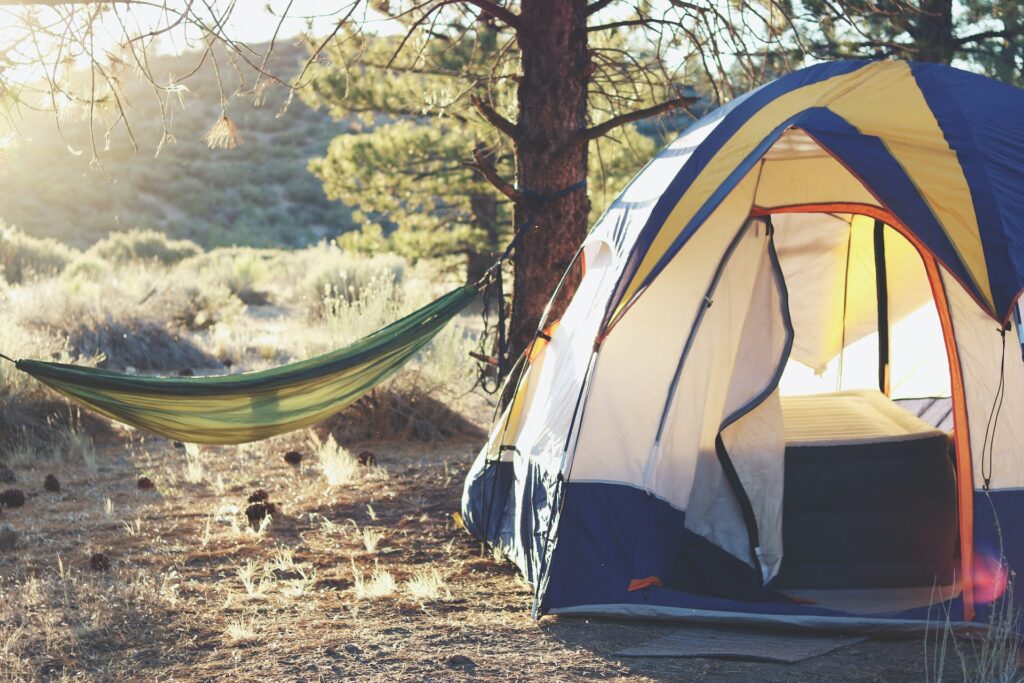Despite so many must-see places in the Sunshine State for camping adventures, none are as underrated as Destin. asSaid to be one of the best “fishing villages” in the state, you can camp out at night, but during the day, nail the “superstars” of the fishing and flyfishing world, including blackfin tuna, grouper, king mackerel, and more. You can also water ski, paddle board, skim-board, and jet ski, and did you know they also have Destin, FL RV parks as well?
But just like camping in any part of the U.S. or the world for that matter, certain safety protocols must be followed no matter where you set up your tent or camper to camp for the night or a series of nights. Every location contains its version of natural beauty, adventure, challenges, and dangers.
According to a new camping safety report, camping is some of the most fun a family can spend together. You not only escape your daily routine, but you also have the opportunity to teach your kids to appreciate nature’s serenity, how fully appreciate its beauty and preservation. You can also teach them how to fish for any number of sporting species.
Florida is a “camper’s paradise,” since it contains a diverse array of county, state, and national recreation areas, campgrounds, forests, and more. It’s also emboldened with a temperate, sub-tropical climate that can be thoroughly enjoyed all year round.
But while spending your family time outdoors can be great fun, it is not without its risks. Say the experts, before engaging in a camping trip in Florida, be it Destin or any number of locales, you should seriously consider several tips that have been carefully compiled by a select group of doctors presently practicing at South Tampa Immediate Care. They just might ensure that your camping adventure is both healthy and safe.
Bottled Spring Water
Bottled spring water is one of the most critical items for staying healthy while camping outdoors. You should never consider drinking from a creek, river, stream, or lake since these sources can be contaminated with harmful bacteria, which can cause serious sickness.
Also, if you run out of bottled water and are forced to drink from natural water sources, make sure to boil it first.
Bring Warm Clothing
You might associate Florida with warm or even hot weather. But during the late fall, winter, and early spring months, the temperatures can go from the 80s during the day but dip into the 40s and 30s during the night.
Experts agree that you should always remember to pack blankets and warm outer clothing just in case you need to protect yourself against the cold. Keep in mind hypothermia can affect the human body even when the temperature is in the 60s and 70s.
Always Check on the Weather Forecast
Before setting up camp and while you’re camping, make sure to keep a sharp eye on the weather forecast. In Florida, late afternoon sub-tropical showers are very common, which means you should expect and prepare to get wet.
Remember that wet, hot weather sometimes attracts dangerous insects, plus mosquitoes. Which means…?
Remember to Bring Insect Repellant
According to the doctors, you need to spray your clothing, not your skin, with powerful insect repellant whenever possible. It’s also said that citronella candles can also help keep bugs away.
At the same time, you need to avoid spraying yourself with colognes, perfumes, “fragrant lotions,” and even scented soaps. These are said to attract insects which can make your trip uncomfortable at best and sickly at worst.
Don’t Feed the Bears
Taken a step further, do not feed the wildlife. You might view the creatures as furry and cuddly, but you should keep your distance. If wild animals learn to associate human beings as food sources, they can become dangerous and aggressive.
If this should occur, environmental officials often are left with no choice but to put the animal down.
Always Leave Your Camping Plans with a “Responsible Person”
It’s said to be a best camping practice to leave a detailed copy of your camping travel plans with a responsible person or persons. Tell a person close to you whom you can trust where precisely you are traveling to. Also, tell them who you will be traveling with and the dates you plan on returning. Leave them your campground info and your cellphone number.
LOST!
This might sound like the title of a Netflix adventure series, but getting lost can cost you and your loved ones their lives when camping. This mistake, which is all too common, or so the experts say, can be avoided by learning to use a compass, a map, and GPS systems before leaving your home.
Always carry these life-saving instruments with you in the wild.

